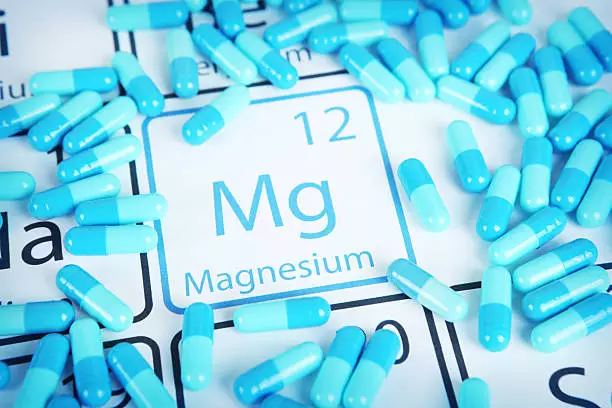
Magnesium is an essential mineral for the proper functioning of our body, playing a crucial role in over 300 biochemical reactions. This article explores the virtues of magnesium, signs of deficiency, dietary sources and recommended intake.
Magnesium was first isolated by Sir Humphry Davy in 1808. A chemical element symbolised by Mg, it is essential to human health for a number of vital functions, including the regulation of calcium, potassium and sodium levels. Its presence is crucial for energy production, muscle contraction and nerve transmission. The breakdown of proteins, fats and carbohydrates would be compromised without an adequate supply of magnesium.
Magnesium deficiency can manifest itself in a variety of signs and symptoms that are often overlooked because they are common to other disorders. These include
These symptoms should raise the alarm and encourage you to check your magnesium levels, especially if they are accompanied by an unbalanced diet or increased mineral requirements.
To maintain optimum magnesium levels, it is advisable to choose certain foods rather than resorting immediately to supplements. Here is a list of the main sources:
These foods not only provide magnesium but also other nutrients that are beneficial to health.
Magnesium requirements may vary according to age, sex and certain physiological conditions (pregnancy, breastfeeding). In general, the recommended daily intake for adults is 400-420 mg for men and 310-320 mg for women. However, these values increase during pregnancy and breastfeeding. It is important to consult a health professional to adjust these doses according to personal circumstances and avoid both deficiency and excess.
It has been scientifically proven that magnesium plays a significant role in managing mental and physical stress. It helps to relax muscles and stabilise mood thanks to its ability to regulate the neurotransmitters associated with stress. A sufficient intake of magnesium could therefore help to reduce the effects of anxiety and provide a general feeling of well-being.
Magnesium works closely with other minerals and vitamins, in particular calcium and vitamin D. Calcium absorption is partially dependent on magnesium; in fact, too much calcium can lead to a magnesium deficiency, and vice versa. Similarly, an adequate amount of vitamin D is needed for magnesium to perform its various functions effectively. Balancing the intake of these nutrients is therefore essential to optimise their usefulness and prevent mineral imbalances.
Although it is widely regarded as safe, overdosing on it can lead to problems such as severe digestive disorders, particularly diarrhoea, and altered electrolyte balance. Supplementation should be undertaken under medical supervision to avoid these inconveniences, especially in people suffering from kidney dysfunction. Regularly analysing your needs and adjusting your intake is a prudent approach if you want to benefit fully from the properties of magnesium without risking your health.
Ultimately, it is a mineral of prime importance to health. Whether it’s preventing muscular disorders, boosting stress management or simply maintaining a robust energy metabolism, this element offers vast benefits. Making sure you get enough of it can save you from a myriad of uncomfortable medical findings linked to its insufficiency. Recognising its dietary sources and correctly balancing its intake with that of other critical minerals is the cornerstone of a responsible approach to nutrition and overall health.
